Yesterday we released an out-of-the-box evaluation on the Linksys WRT1900AC V2 wireless router. Today's content is about the disassembler evaluation.
Disassemble
Hidden screws in the four legs of the router
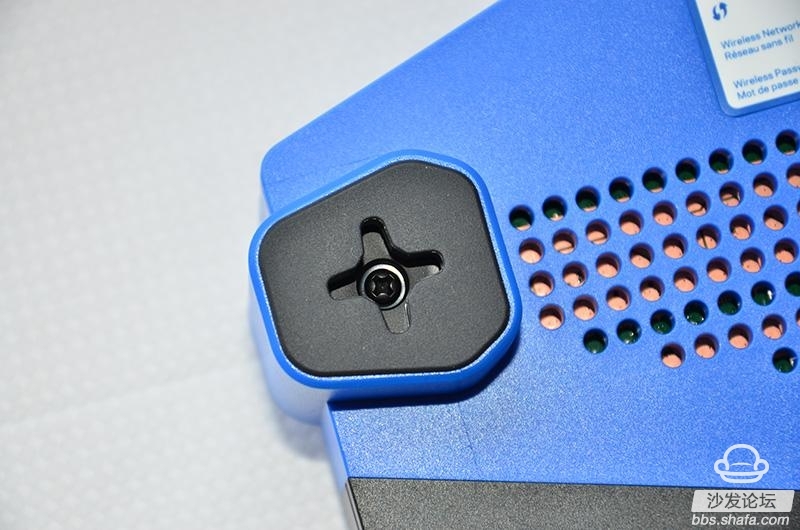
Remove the four screws one by one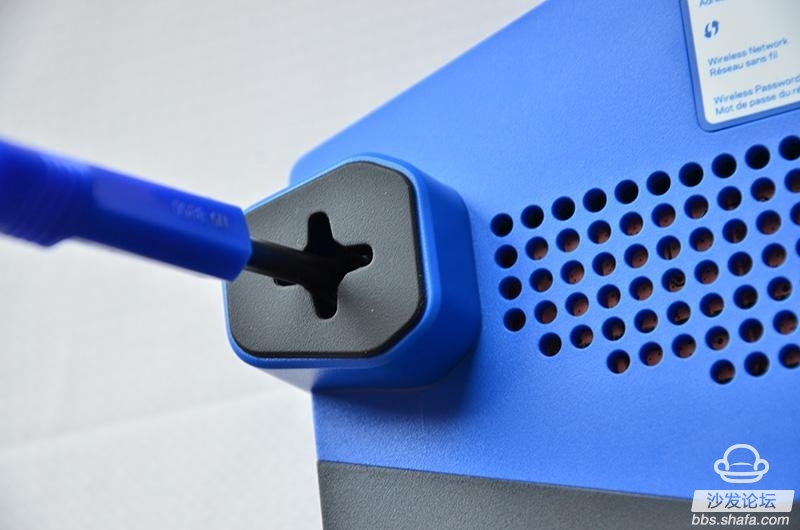
It can be seen that the rear two screws are longer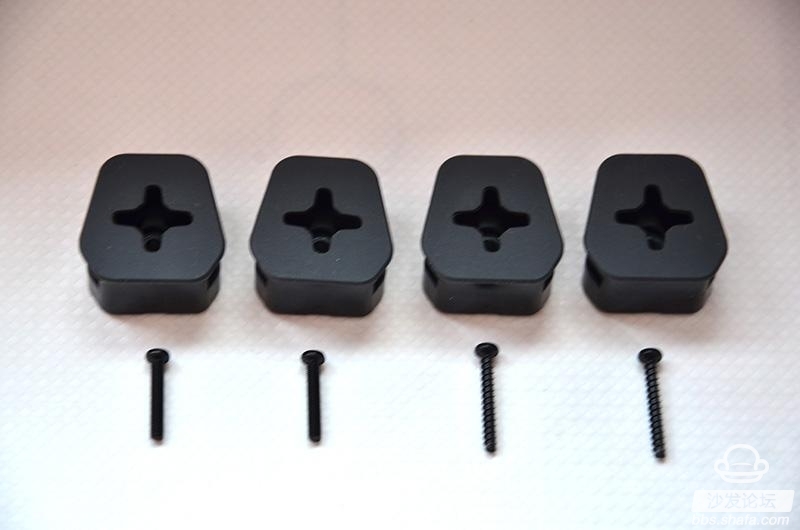
At this point, the blue part can be pulled out and separated before and after
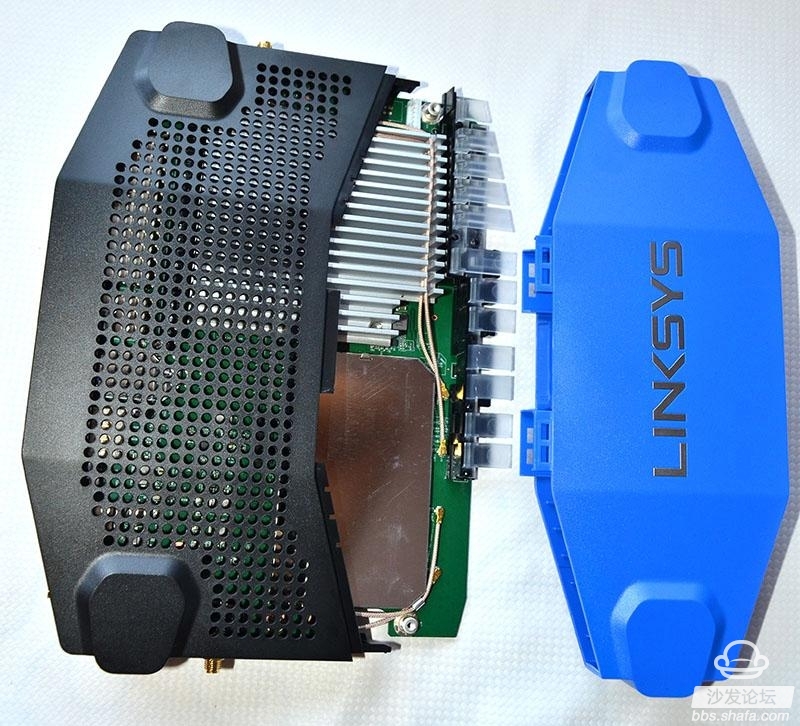
Side view of LED indicators and heat sinks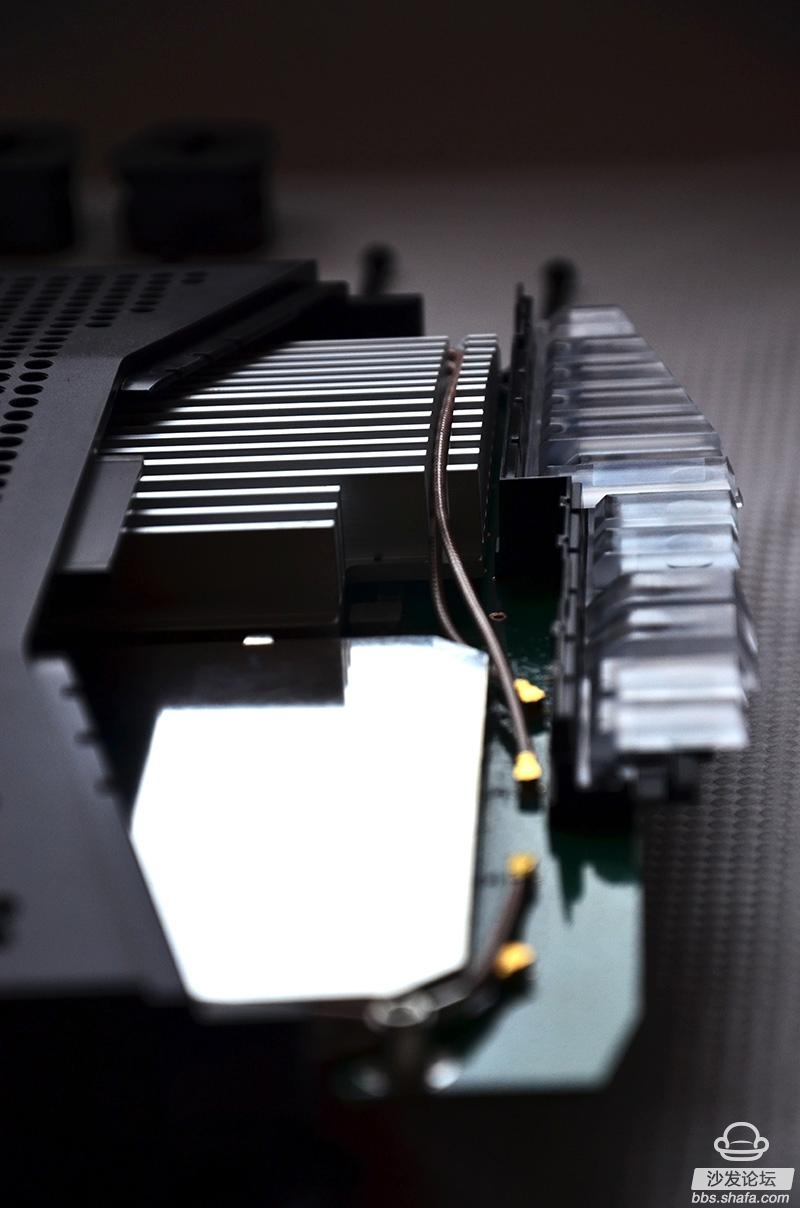
The blue front cover grinding tool is very fine, without the slightest flaw
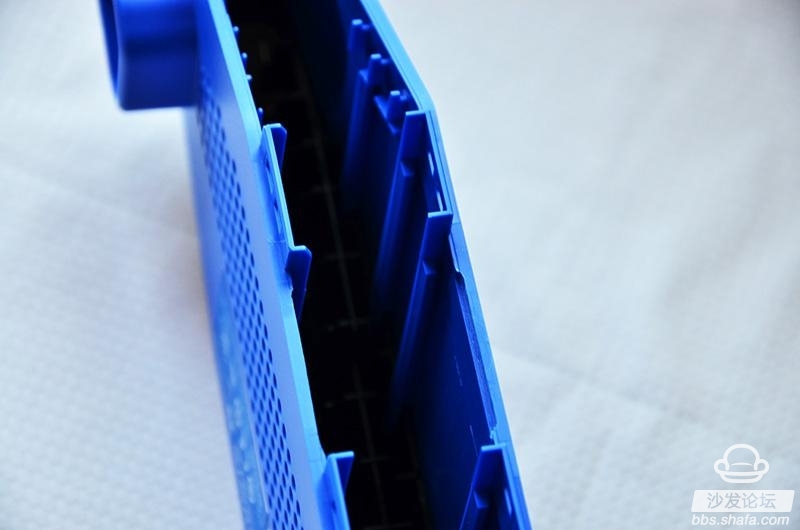
From another perspective, the interior is still quite satisfactory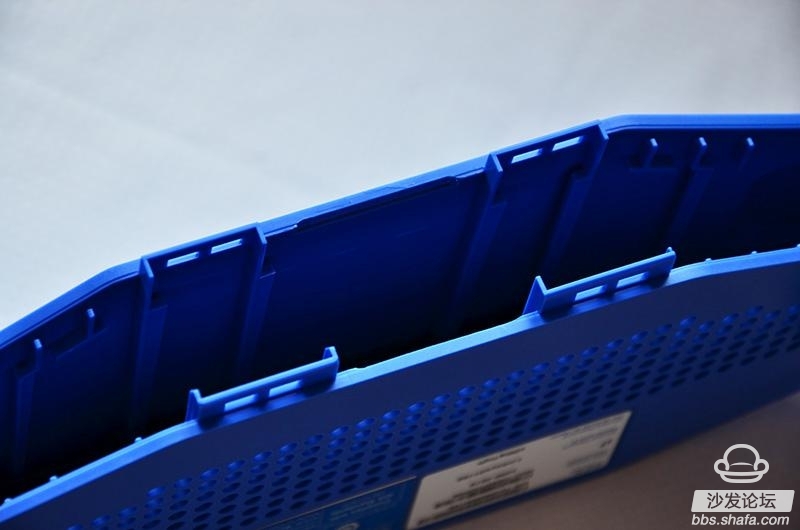
Then the top cover was smashed down and the whole shell was tightly snapped. The snaps were also strong. The smashing rod was finally opened with a flat-bed screwdriver.
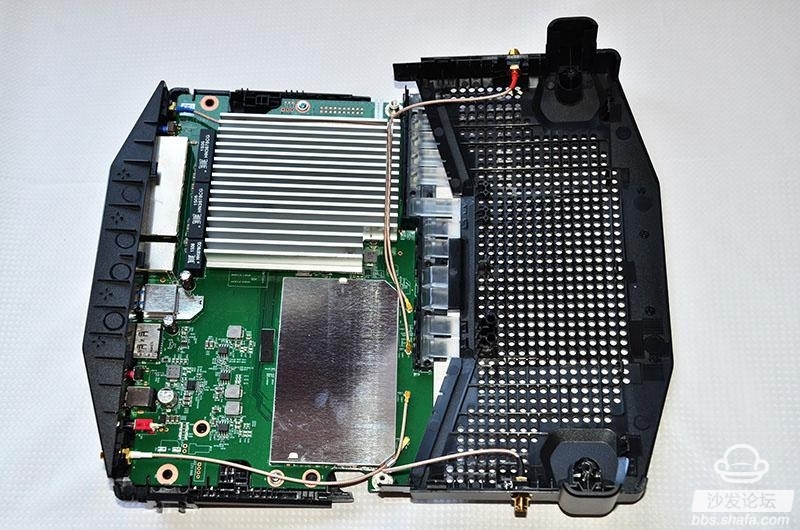
The four antenna cables are braided and the interface is still plated with gold, which is comparable to crafts.
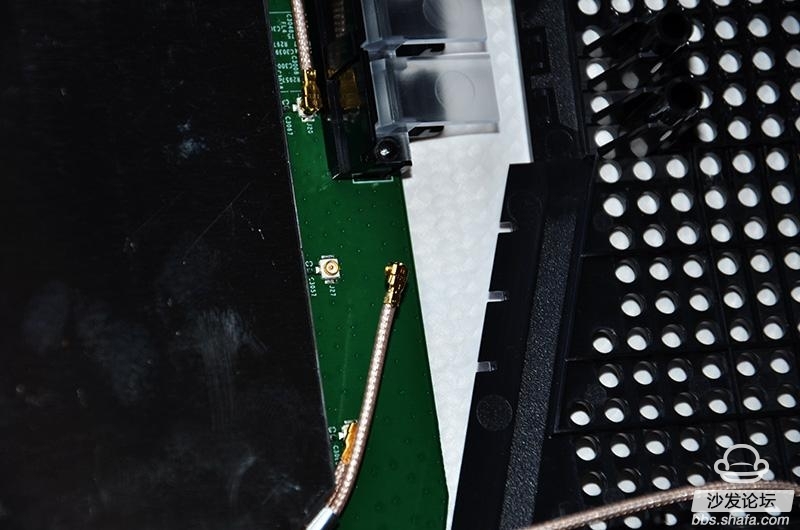
Unplug the antenna and remove the top cover
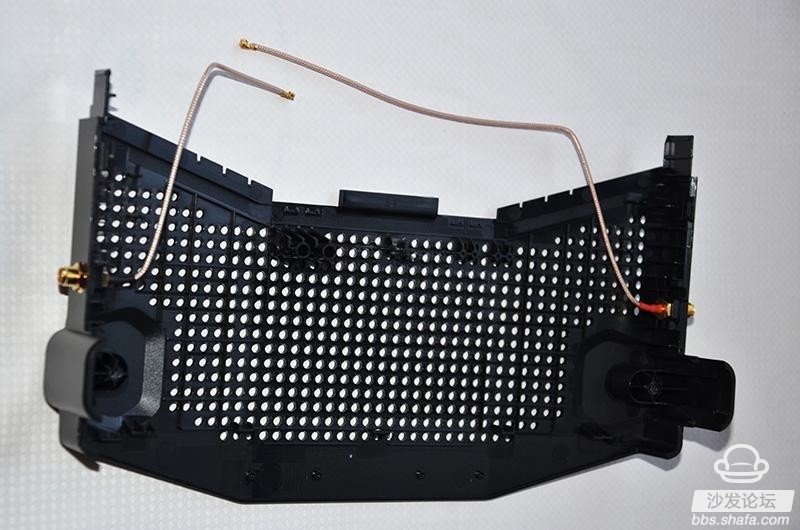
You can see one screw on the left and right of the PCB and unscrew one by one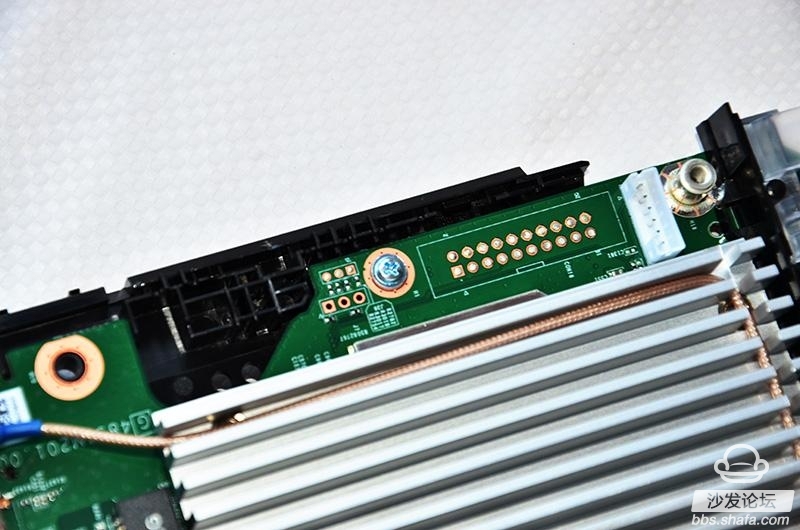
Right screw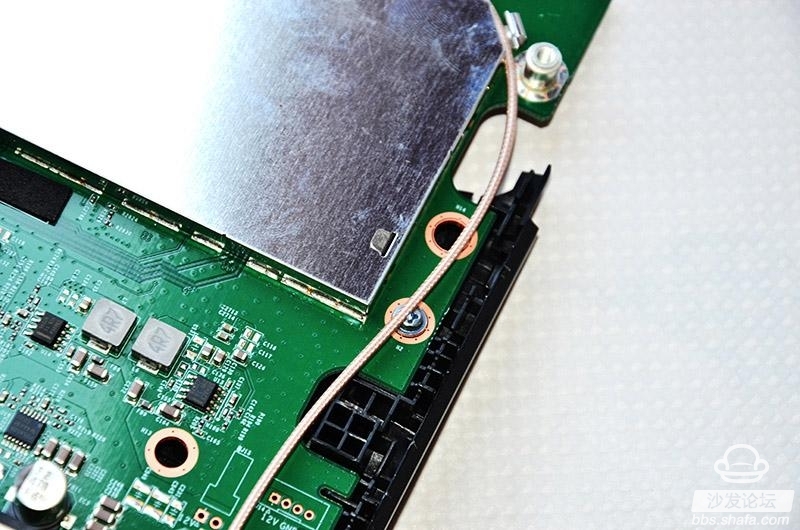
OK, you can remove the PCB
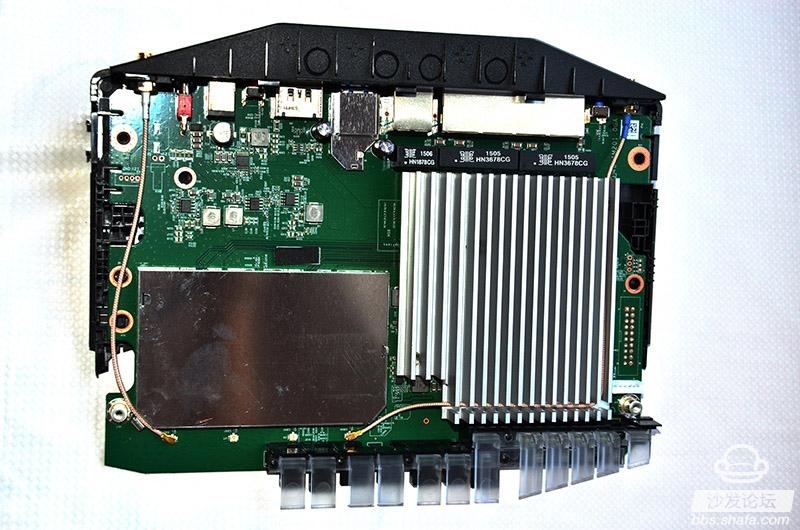
The front side of the PCB shows the heat sink with the largest footprint and a metal shield. Discovered here and wrt1900ac
The biggest difference of V1 is that there is no fan. Of course, the crowds have said that V1's temperature-controlled fan has never turned.
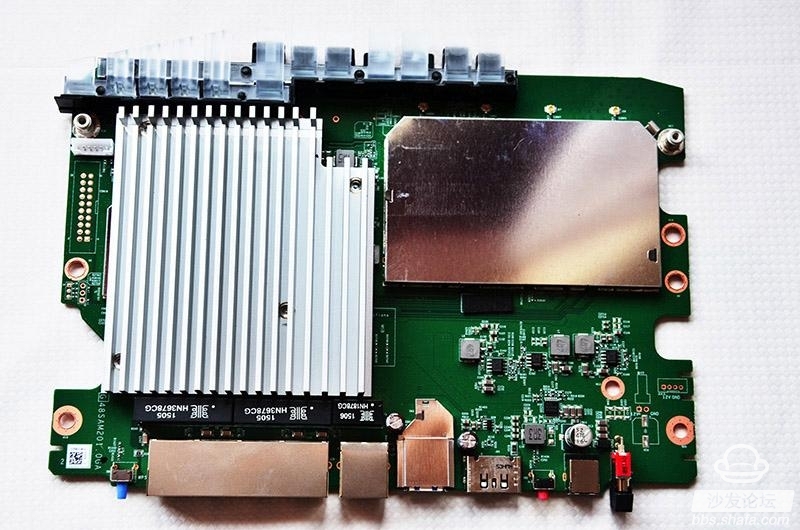
The rear view of the PCB, the entire back of the components less fresh and clean
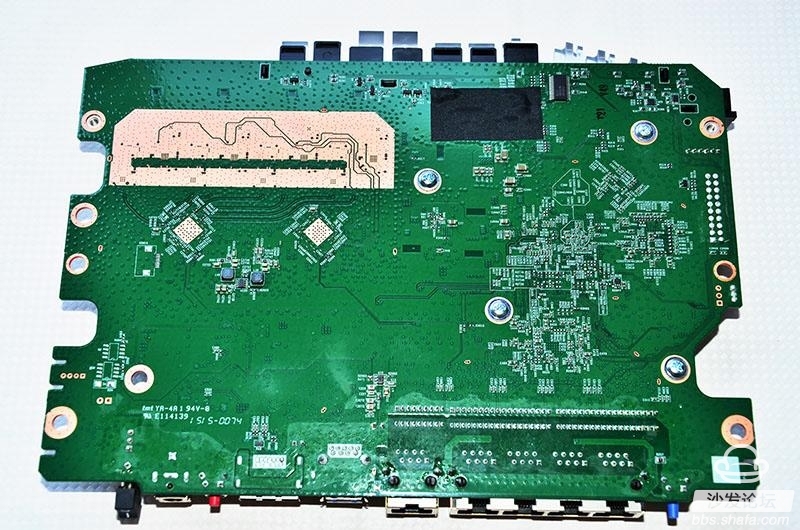
Remove all shields, the chip at a glance
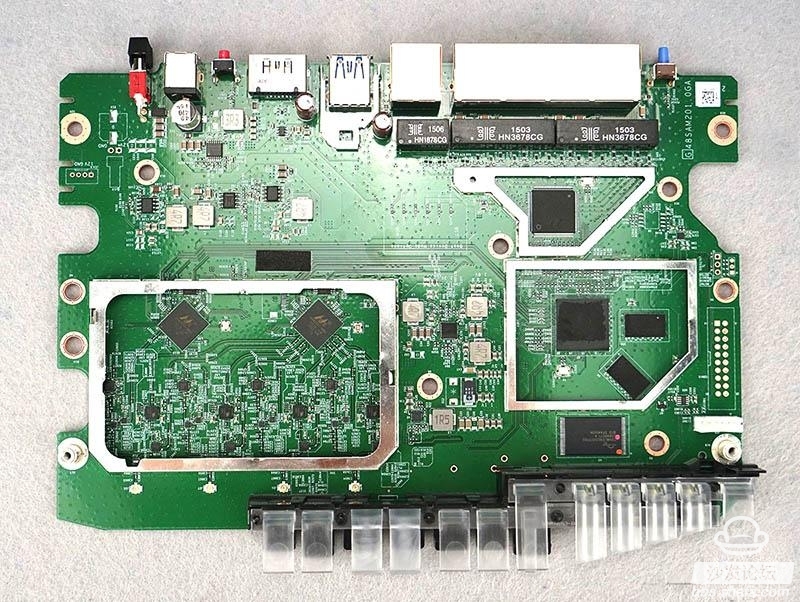
Take a look at the interface and the auxiliary circuit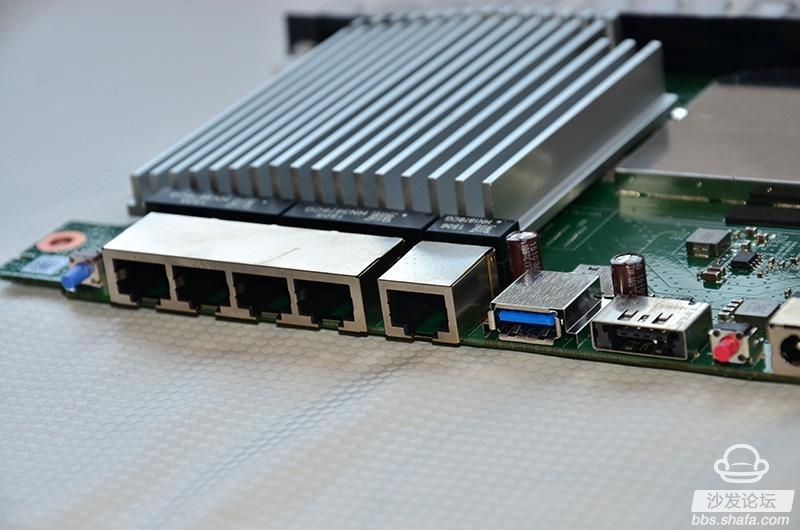
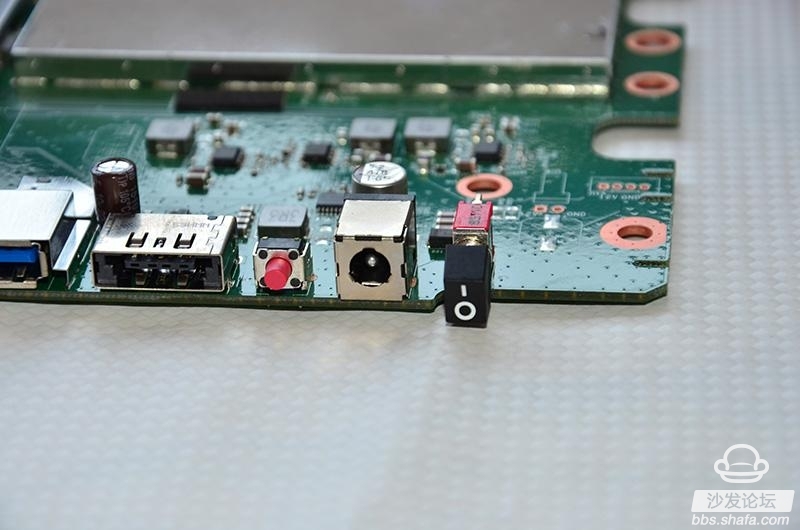
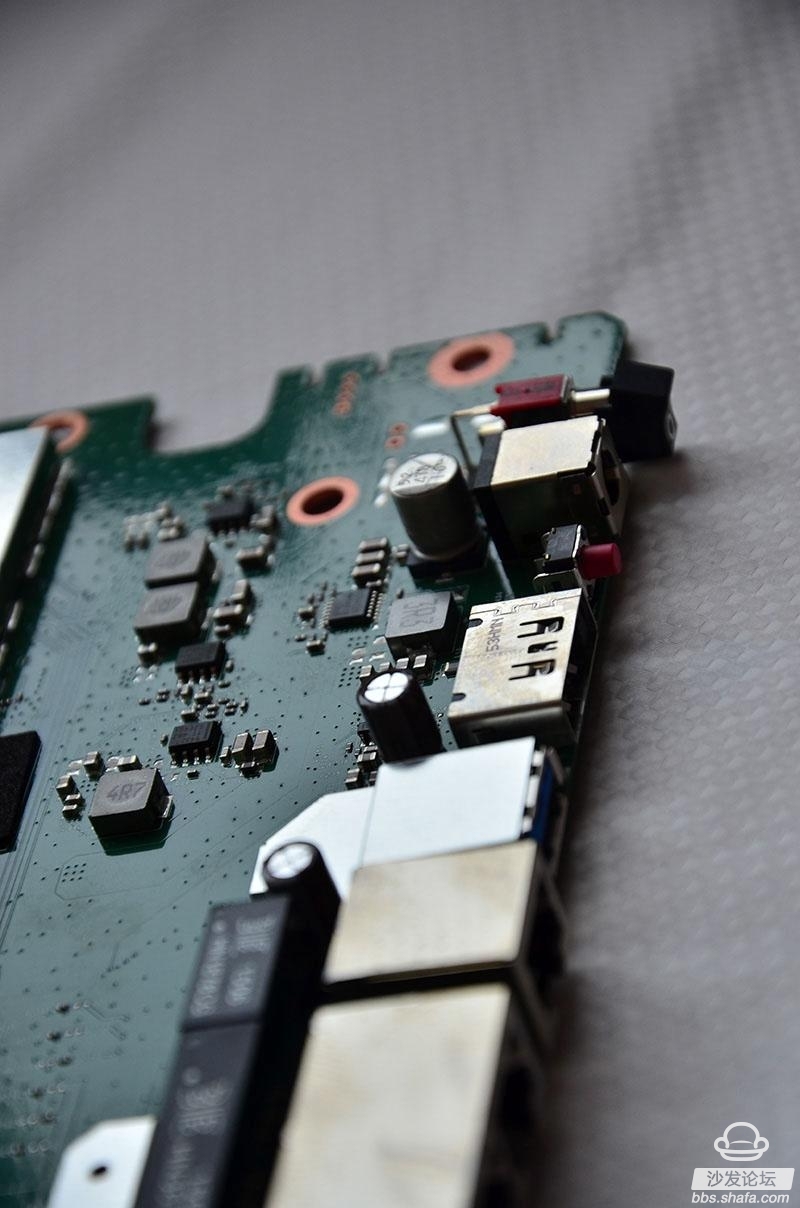
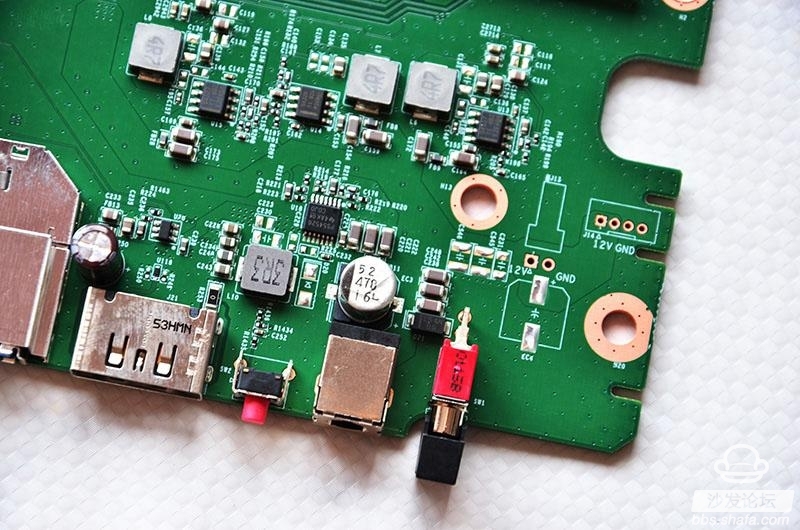
Next look at the chip. The figure shows the CPU and two memory chips.
This CPU is ARMADA 385 88F6820 from Marvell, dual-core 1.33G. The previous WRT1900AC V1 used Marvell's ARMADA XP, 78230-B0, dual-core 1.2G.
Although the front box indicated a memory of 256M, we saw that the 2 tablets were SK Hynix's H5TQ2G63EFR memory. According to Hynix's numbering rule, the actual capacity of DDR3 memory particles with a single particle capacity of 2 Gb is 256 M, and two pieces total 512 M.
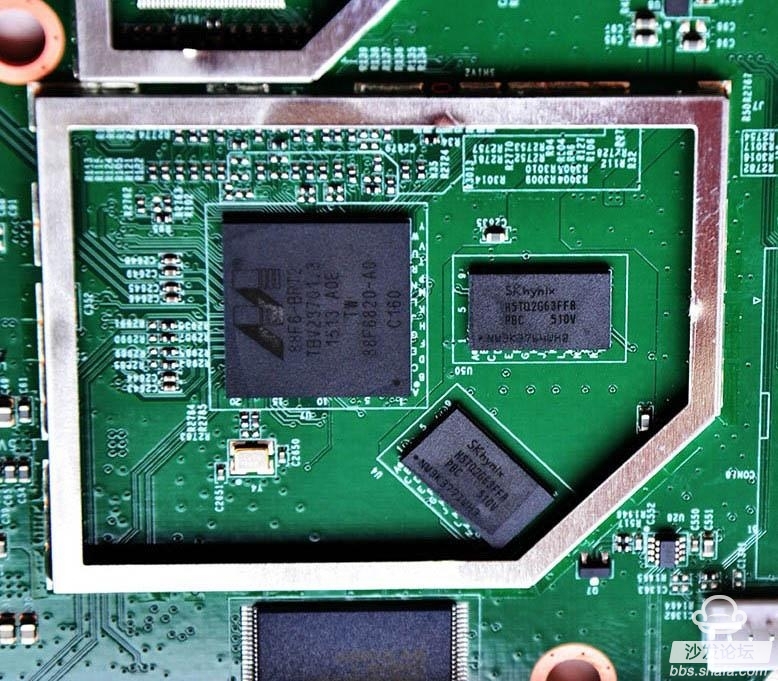
Reference official website 88F6820 performance parameters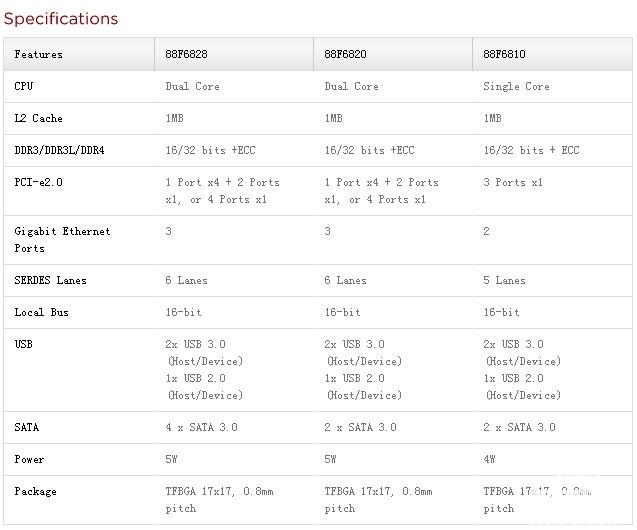
128M flash memory chip
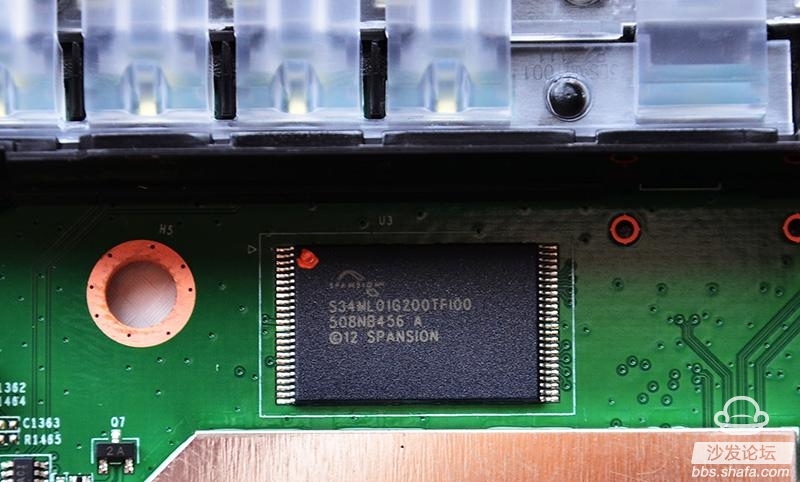
Since the CPU 88F6820 itself can only provide 2 Gigabit network interfaces, the WRT1900AC V2 router still needs to be equipped with a Gigabit LAN network switch chip to achieve 4 Gigabit LAN interfaces and 1 Gigabit WAN interface. We see here also There is a Marvell 88E6176 chip. Marvell China Display 88E6176 can be used for 7-port GE switches, supporting 5 integrated PHYs, 1GMII, RGMII, 1 Serdes, and EEE.
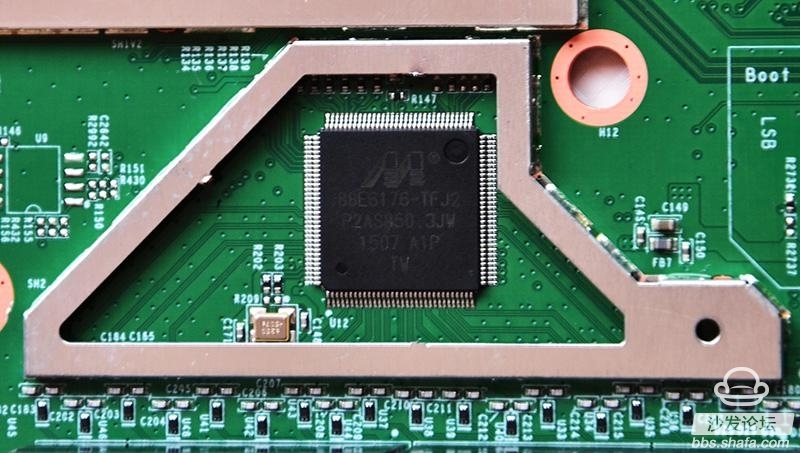
In WRT1900AC V1, the wireless module is located in a separate PCI-E card, and v2 is directly designed on the PCB motherboard. Both 2.4G and 5G network modules use the 88W8864 network chip. Marvell 88W8864 is actually a wireless LAN system-level chip that integrates Cortex-A9 architecture core and SRAM memory. It not only supports 2.4GHz/5GHz dual-band and 802.11ac standards, but also can independently process wireless network data and can effectively share the data. Router CPU load.
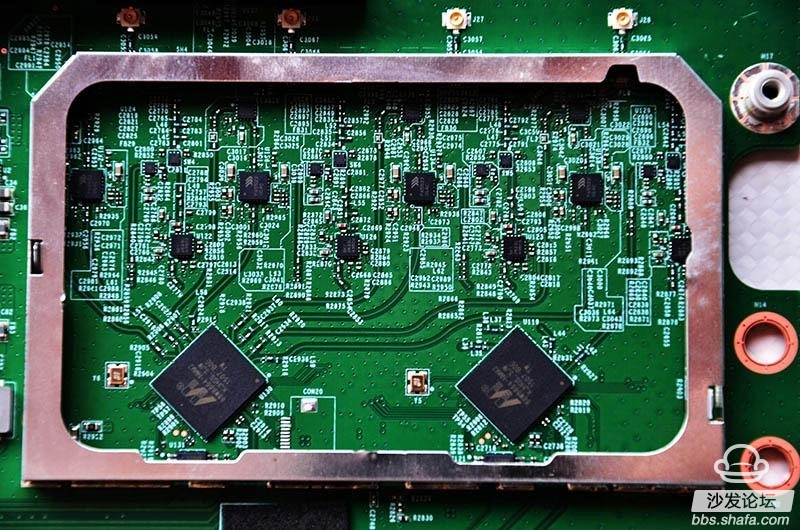
The main features of the Marvell Avastar 88W8864 chip:

Finally pay attention to the new antenna
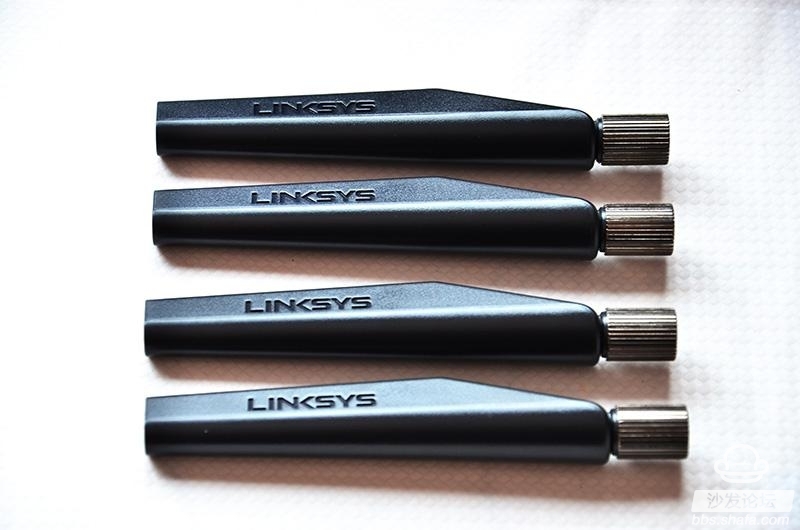
In the future, the official version can provide enhanced antenna, cool!
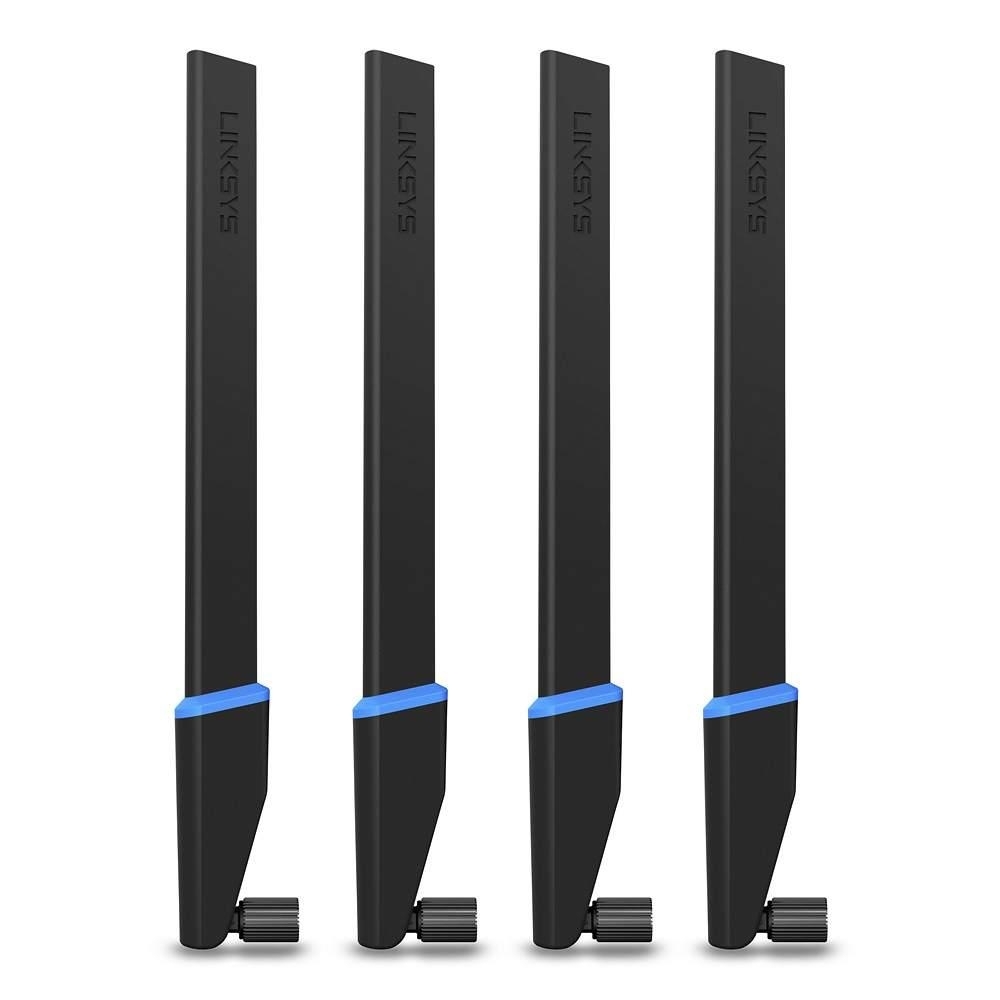
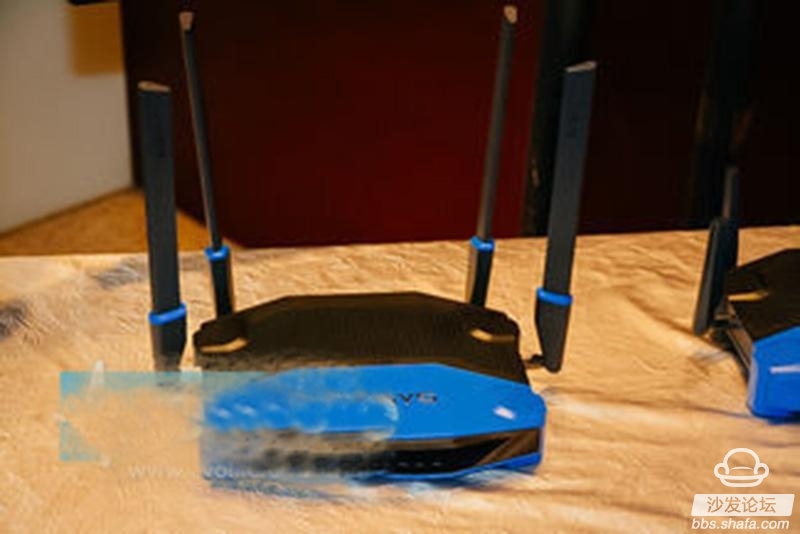
The above is the contents of the Linksys WRT1900AC V2 wireless router teardown evaluation, follow-up evaluation content will also be offered in succession, so stay tuned!
Disassemble
Hidden screws in the four legs of the router

Remove the four screws one by one

It can be seen that the rear two screws are longer

At this point, the blue part can be pulled out and separated before and after

Side view of LED indicators and heat sinks

The blue front cover grinding tool is very fine, without the slightest flaw

From another perspective, the interior is still quite satisfactory

Then the top cover was smashed down and the whole shell was tightly snapped. The snaps were also strong. The smashing rod was finally opened with a flat-bed screwdriver.

The four antenna cables are braided and the interface is still plated with gold, which is comparable to crafts.

Unplug the antenna and remove the top cover

You can see one screw on the left and right of the PCB and unscrew one by one

Right screw

OK, you can remove the PCB

The front side of the PCB shows the heat sink with the largest footprint and a metal shield. Discovered here and wrt1900ac
The biggest difference of V1 is that there is no fan. Of course, the crowds have said that V1's temperature-controlled fan has never turned.

The rear view of the PCB, the entire back of the components less fresh and clean

Remove all shields, the chip at a glance

Take a look at the interface and the auxiliary circuit




Next look at the chip. The figure shows the CPU and two memory chips.
This CPU is ARMADA 385 88F6820 from Marvell, dual-core 1.33G. The previous WRT1900AC V1 used Marvell's ARMADA XP, 78230-B0, dual-core 1.2G.
Although the front box indicated a memory of 256M, we saw that the 2 tablets were SK Hynix's H5TQ2G63EFR memory. According to Hynix's numbering rule, the actual capacity of DDR3 memory particles with a single particle capacity of 2 Gb is 256 M, and two pieces total 512 M.

Reference official website 88F6820 performance parameters

128M flash memory chip

Since the CPU 88F6820 itself can only provide 2 Gigabit network interfaces, the WRT1900AC V2 router still needs to be equipped with a Gigabit LAN network switch chip to achieve 4 Gigabit LAN interfaces and 1 Gigabit WAN interface. We see here also There is a Marvell 88E6176 chip. Marvell China Display 88E6176 can be used for 7-port GE switches, supporting 5 integrated PHYs, 1GMII, RGMII, 1 Serdes, and EEE.

In WRT1900AC V1, the wireless module is located in a separate PCI-E card, and v2 is directly designed on the PCB motherboard. Both 2.4G and 5G network modules use the 88W8864 network chip. Marvell 88W8864 is actually a wireless LAN system-level chip that integrates Cortex-A9 architecture core and SRAM memory. It not only supports 2.4GHz/5GHz dual-band and 802.11ac standards, but also can independently process wireless network data and can effectively share the data. Router CPU load.

The main features of the Marvell Avastar 88W8864 chip:
· 802.11ac: This standard significantly increases the available bandwidth of Wi-Fi links as well as network capacity in densely populated environments, and extends wireless connectivity to new applications such as real-time video streaming and wireless backup. With 802.11ac, Marvell's 88W8864 chip provides up to 1.3 Gbps of throughput, making it ideal for enterprise class access point and carrier grade wireless transmissions.
· Beamforming: Beamforming is a specialized method of radio frequency transmission that can be integrated into a range of devices from access points to laptops and smartphones. This technology can greatly improve link stability and wireless performance support, for example, enabling seamless high-definition video streaming where devices can only maintain minimal network connectivity.
· Complete 4x4 MIMO dual-band 802.11ac solution
Up to 1.3Gbps wireless LAN transfer rate
Up to 80MHz channel bandwidth
· 256 QAM (quadrature amplitude modulation) modulation scheme
· Market-validated implicit feedback and explicit feedback transmit beamforming
Low Density Parity Check (LDPC)
· Powerful Wi-Fi offload engine
· Marvell's spectrum management
Multi-stream, low packet error rate, low latency HD video
Integrated Wi-Fi positioning engine
· Marvell's platform advantages [1]


In the future, the official version can provide enhanced antenna, cool!


The above is the contents of the Linksys WRT1900AC V2 wireless router teardown evaluation, follow-up evaluation content will also be offered in succession, so stay tuned!
Frame For Iphone 14,Metal Frame For Iphone X14Promax,Iphone X14Promax Frame With Glue,Original Frame For Iphone X14Promax
Shenzhen Xiangying touch photoelectric co., ltd. , https://www.starstp.com